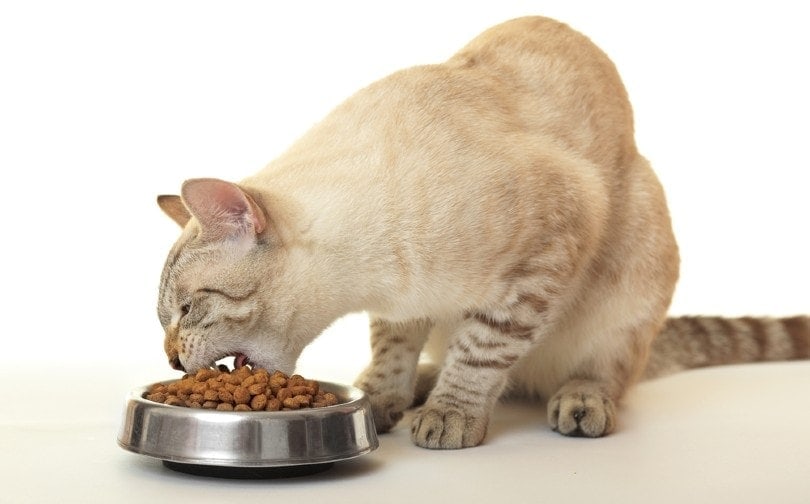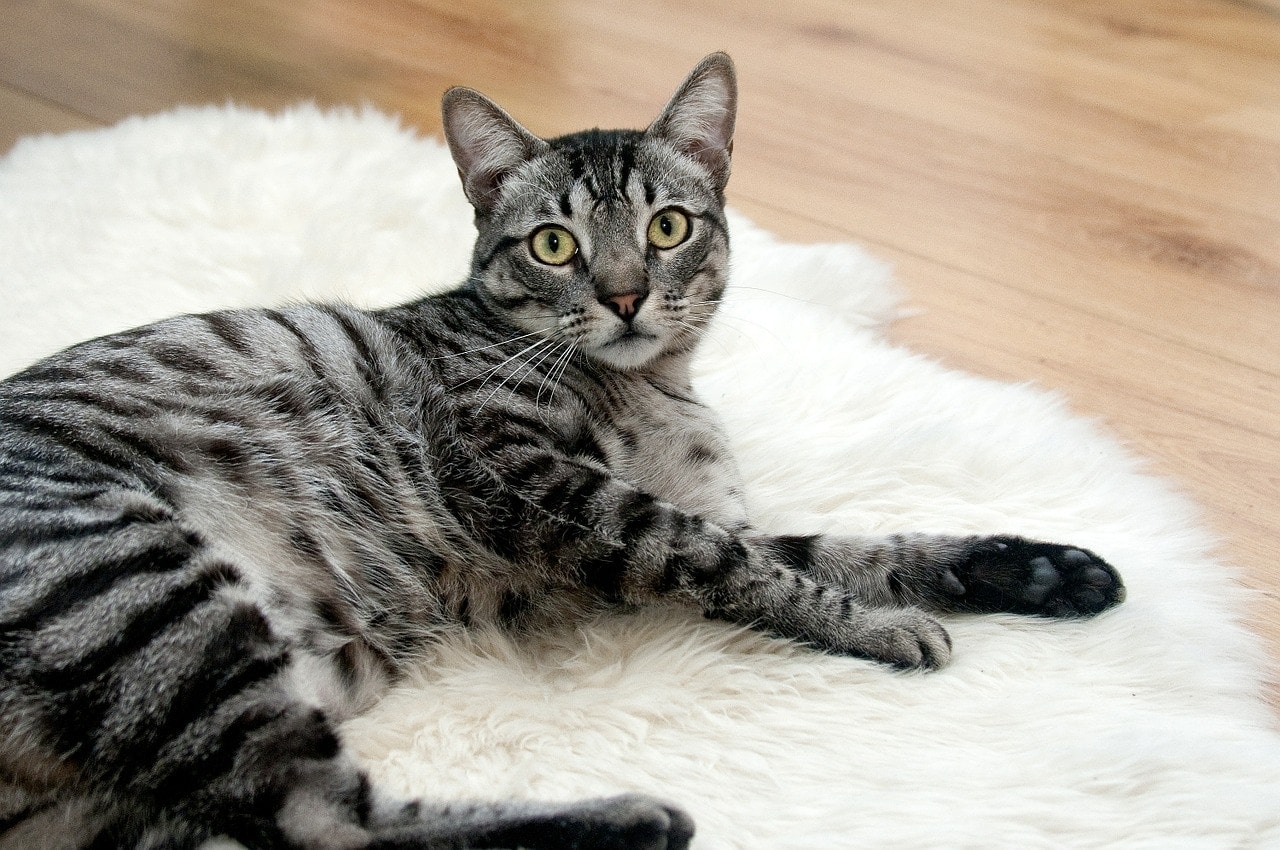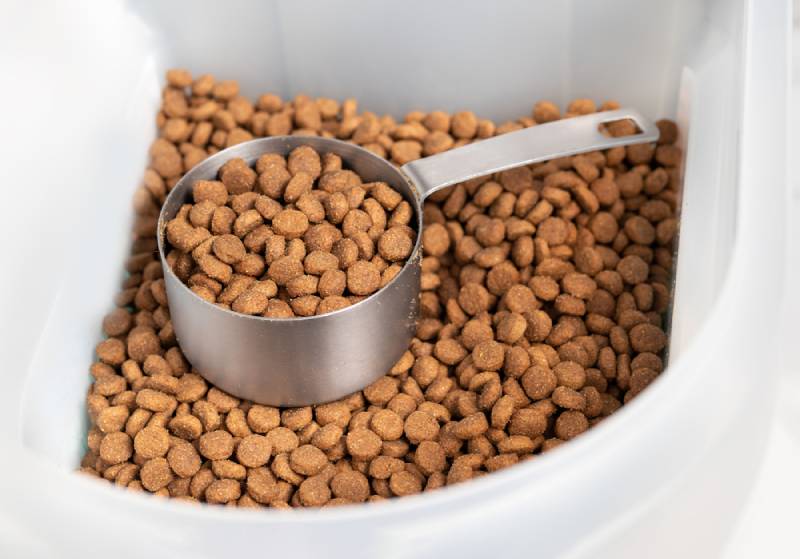Is Echeveria Toxic to Cats? Vet-Approved Safe Plants for Felines

Updated on
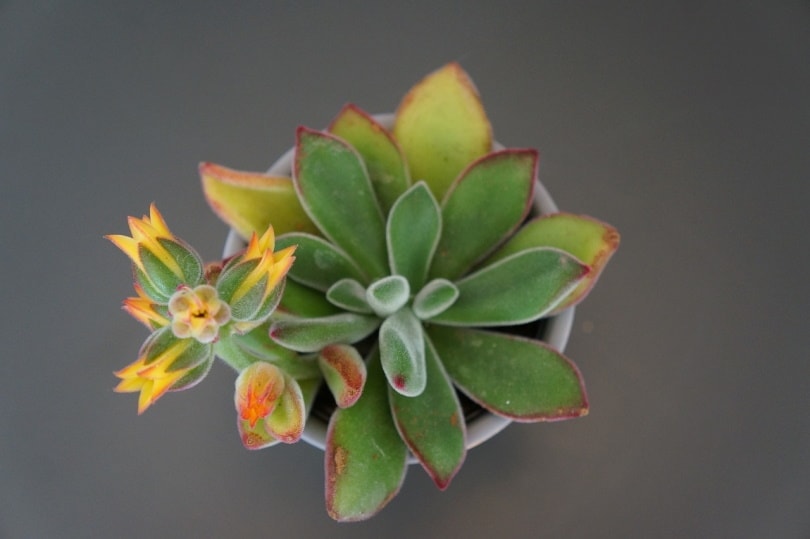
Succulents are plants native to desert locations that get their name from their thick, fleshy, sap-filled leaves. If you’re a cat lover who also loves succulents, you should know that the two can co-exist, but only if you’re aware of which succulents are pet-friendly.
One of the most popular succulents you can grow without worrying it will harm your cat is echeveria.1 Native to Central and South America, echeveria is characterized by its thick leaves that form a rosette pattern. So, feel free to grow this beautiful plant in your home because echevaria is one of the safest succulents that doesn’t harm cats!
Echeveria Isn’t the Only Cat-Safe Succulent
As a cat owner, you know it’s not possible to supervise your feline around the clock. You also know that cats are curious creatures that like to explore their surroundings, which often includes houseplants.
Cats often nibble on the leaves and stems of houseplants to quell their curiosity, which means you have to be careful about what plants you keep in your home.
The good news is that there are more succulents than just echeveria you can safely keep in your home that are non-toxic to cats. We’ll cover those succulents here and give you some tips for keeping your curious cat away from your houseplants.
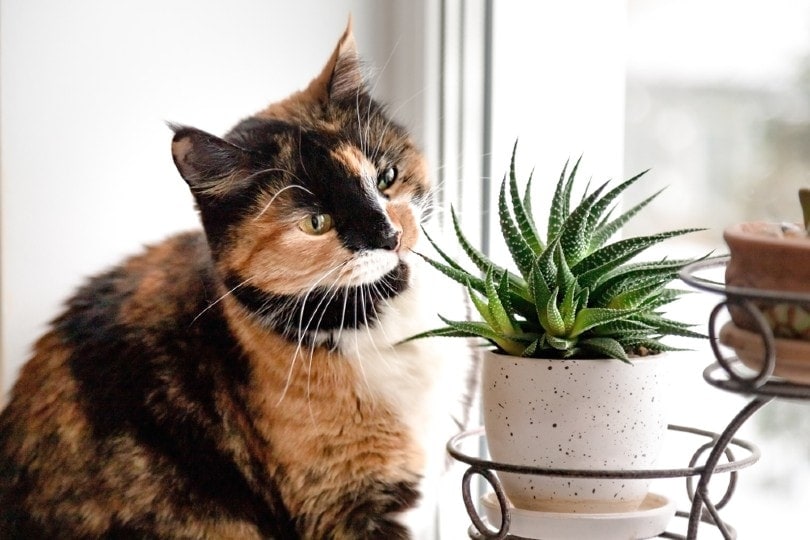
Top 4 Cat-Friendly Houseplants:
1. Christmas Cactus
The gorgeous Christmas cactus is a very popular plant during the holiday season. You can find this succulent for sale virtually everywhere from Christmas markets to large department stores and local flower shops. You can keep this succulent in your home and not worry about your cat’s safety because it’s non-toxic to cats.
2. Ponytail Palm
Many people are surprised to learn that the ponytail palm is a succulent because it looks like a spider plant. But it is indeed a very hearty succulent that’s relatively easy to grow. This is an excellent succulent to keep with cats because it’s completely feline-friendly.
3. Zebra Haworthia
Zebra haworthias are great succulents for anyone who doesn’t have a green thumb because they’re easy to grow. The only way you can kill this plant off is by giving it too much water. This cat-safe succulent is a gorgeous plant with little white spiny features on its thick pointed leaves. Even the most curious cat will steer clear of a zebra haworthia because it can be uncomfortable to touch this pokey plant.
4. Burro’s Tail
The burro’s tail is a great cat-friendly option if you like hanging succulents. This plant comes in two varieties: the grains of rice, which have pointy leaves, and the round pearls, which have round leaves. Regardless of what type you like, you can keep your burro’s tail indoors or outdoors as long as it gets plenty of indirect light. This is another succulent that’s hard to kill, plus it only needs water about once a month since its leaves store water.

How to Keep Your Cat Safe Around Plants:
Even if all your houseplants are cat-safe, your little furry friend can do some significant damage to your plants by chewing on the leaves and stems and digging in the dirt. Here are some effective ways to keep your cat away from your houseplants so they can thrive.
- Use a Pet Deterrent Spray: You can pick up a bottle of pet deterrent spray at a pet store that will keep your feline away from your houseplants. This type of spray emits an odor cats detest like bitter lime. Once you spray this product on your potted plants, you’ll be good to go because your cat will steer clear of your plants and find something else to do.
- Hang Your Plants: A great way to keep your cat off your plants is to hang them out of your kitty’s reach. You can use ceiling hooks or plant hangers to get the job done. Just be sure your cat won’t be able to jump up on something nearby to get to your plants. Even if you have to move around some furniture, it will be worth the trouble knowing your plants are safe!
- Set Up a Cat-Free Zone: If you have a big home, consider setting up a no-cat area where you can keep your houseplants safe. This could be a spare bedroom with a door that can be closed to keep your kitty out.
- Use a Spray Bottle: You can keep your cat away from your plants by filling an empty spray bottle with water and spritzing your cat when they approach your plants. This tactic will only work if you’re at home most of the time to keep an eye on your plants and the cat.
- Keep the Litter Box Clean: If your cat is digging in your large potted plants, they may be unhappy with their litter box. Keep your cat’s litter box clean by changing the litter often. If this doesn’t keep them out of your plants, move the box to another location or buy a new litter box that’s different from the one you have now. For example, if you’re using a low-sided box, switch to a high-sided litter box and see if that helps.
Conclusion
Echeveria is a cat-friendly succulent you can keep in your home without worrying it will harm your beloved kitty. You can also pick up any of the non-toxic succulents mentioned above because they can easily co-exist with cats.
If your cat is messing with your houseplants, try some of the tactics we covered here. With a bit of good luck, you can enjoy both your favorite plants and your family cat without any problems at all!
Related Reads:
- Are Dahlias Poisonous to Cats? Keeping Your Cat Safe
- Are Pussy Willows Toxic To Cats? Keeping Your Cat Safe!
Featured Image Credit: Claudia_Felbermayer, Pixabay



